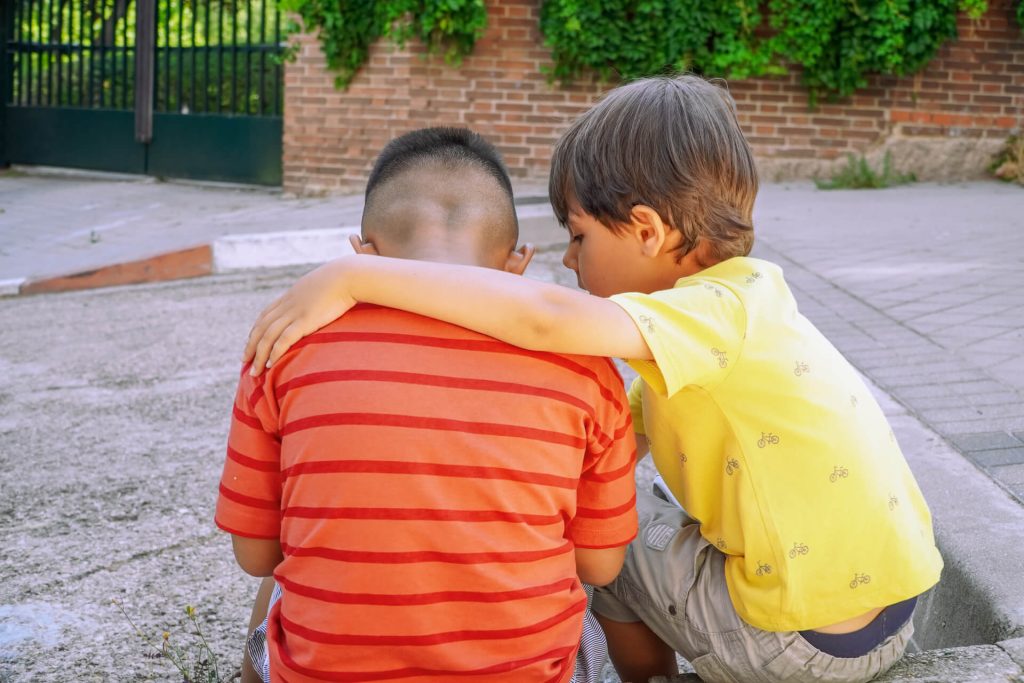Do you also feel that one of our biggest problems in life is thinking that happiness is something that will come later? That we are always waiting to receive, achieve, or attain something in order to be satisfied? That we will finally be grateful only in the future? In this waiting, have we neglected the happiness that is happening right now, the joy that costs little, almost nothing, but is actually the most valuable? Without intending to be some kind of parenting guru, I would like to share my experience with you through examples of how I taught my children to be modest, grateful, and content. Sometimes, as parents, all we need is a small external encouragement that can change many things for the better.
There is nothing worse than people who are "healthy and well," lacking nothing, living in peaceful areas, not deprived of anything, surrounded by loved ones, yet are constantly dissatisfied, always missing something, and unable to appreciate what they have.
Of course, it is desirable for children to develop critical thinking and strive to improve the world around them, but in all of that, we must find balance—otherwise, they will grow into ungrateful and bitter individuals.
What is gratitude, anyway? How is it developed?
As the verses of the great Montenegrin poet Vitomir Nikolić say:
“Sometimes I have a strange desire
to buy a postcard and write:
It’s all good: the post offices work, there’s no war…
And nothing more.”
Gratitude is a fundamental value that shapes our view of the world and the way we live. Teaching children to appreciate life and not take anything for granted is crucial for their emotional well-being and happiness. Unfortunately, in today's world, where so much is easily accessible, yet everything changes so quickly, children (and adults) often forget how important it is to be grateful for what we have.
Gratitude is the conscious recognition and acknowledgment of the good things in our lives. It is a state of mind that allows us to focus on the positive aspects of everyday life, rather than on what we lack. We teach children that gratitude is more than just saying "thank you"; it is a deep inner feeling that connects us with the world around us.
Personal Example
Children learn by observing, and if they see that you value small things, they will do the same. As a parent, you are a role model for your child. Show gratitude in your everyday life—pause and be amazed by a bug, a flower, a sunset, the shapes of clouds, the people who are kind to us, music, and all the beauty that surrounds us.
Even though I am someone who loudly protests against injustices and does not hide this from my children—in fact, I teach them to point out the problems they notice around them so that things can be better for themselves and others, especially those without privileges, the weak, the discriminated, and the marginalized—I also love to turn small things into events they will remember. To make everything a little spectacle.
When I remind them that they should be happy to eat fruit picked from a tree at their grandparents’ house. Or when I suggest we play a word game during a boring train ride, and other passengers join in, making the time pass faster for all of us. Or when we established our little ritual of having chocolate pudding every time it rains. Or when I pompously announce how lucky we are to have brought pretzels and peaches to the beach. Like when I organize an adventure of going to the nearby forest, and we are grateful for its proximity and for making a hiking trip with a picnic during the break... All these may sound ordinary, but when you ask the children after some time, these are the things they remember and appreciate, the ones that don’t cost much.
My children don’t forget how I played doctor, salon, and camping with them. How I set up clues for them to find hidden treasures. They remember how I didn’t buy ready-made costumes for them but instead, we sewed, painted, and glued them together.
Less Emphasis on Material Things
Children will know about brands only as much as you make them a status symbol, and they will desire certain material things if you are excited about them. Until they start school, when they will spend more time among their peers and unfortunately learn about brand-name clothes, expensive sneakers, mobile phones, play stations, children know only what you reveal to them. A child will be content with the sea and a beach where they can play with sand and pebbles. They won’t be bored and won’t think they need any kind of entertainers and luxury unless you show them otherwise.
You can’t explain to children what it means to be grateful with a definition—gratitude is manifested through everyday actions and feelings. Through simple examples, like being grateful for a tasty meal, playing with friends, or the fact that we made it possible for the whole family to go on a bike ride and enjoy the beauty of nature, children can recognize what they have in life.
Telling stories about children who live in difficult conditions but are noble, brave, and joyful about small things can also help raise awareness in your children about the privileges they have.
How to Avoid Discontent and Greed?
Why is gratitude important? Gratitude helps build a positive outlook on life, reduces stress, and increases life satisfaction.
Parents can help by limiting material pleasures and instead encouraging children to seek happiness in experiences, relationships, and inner peace. For example, instead of always buying them new toys, spend quality time together—by going out in nature, reading books, or cooking and experimenting in the kitchen together.
Although we often forget the importance of daily blessings, it is our parental duty to guide them and help them build a foundation for a happy, fulfilling, and grateful life. Teaching children to appreciate life and be grateful is a long-term process, but it is crucial for their future development. Only then will they become adults who appreciate each day and know how to enjoy life, regardless of the challenges that await them. And when things don’t go as planned—instead of complaining and giving in to despair, we will teach them to approach problems with a constructive attitude, seeking solutions, fighting, and making things better.





